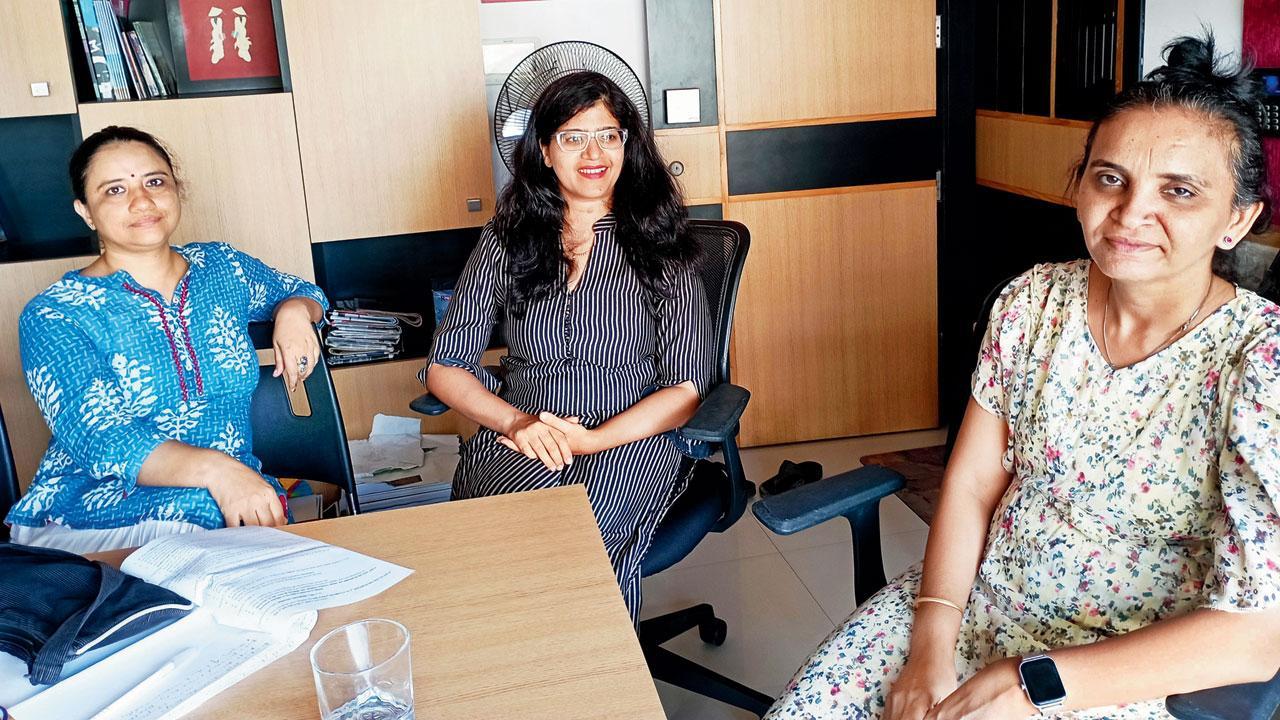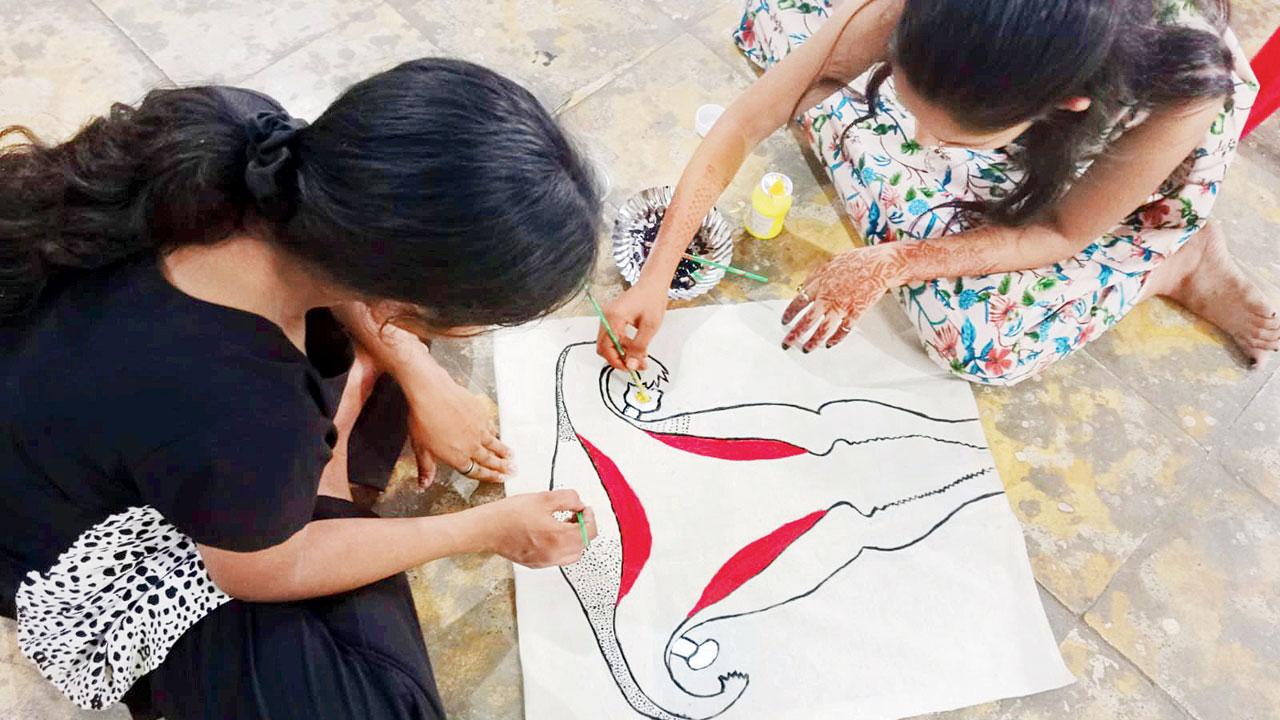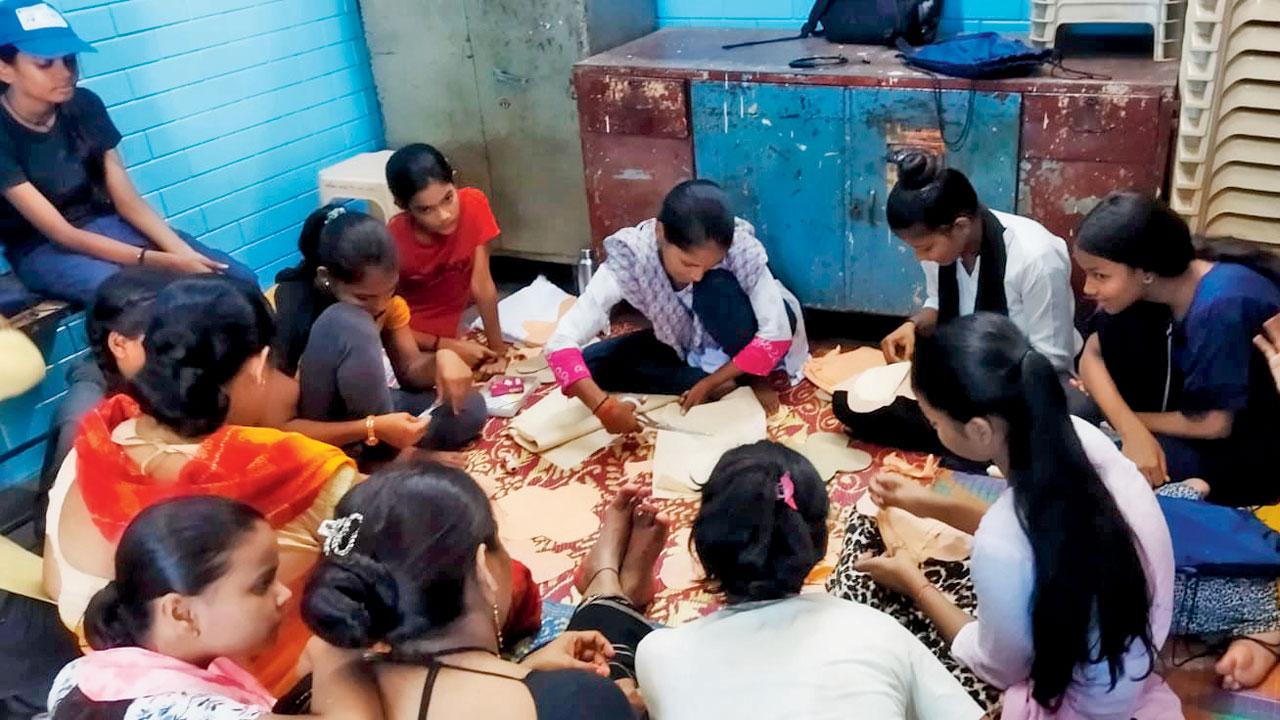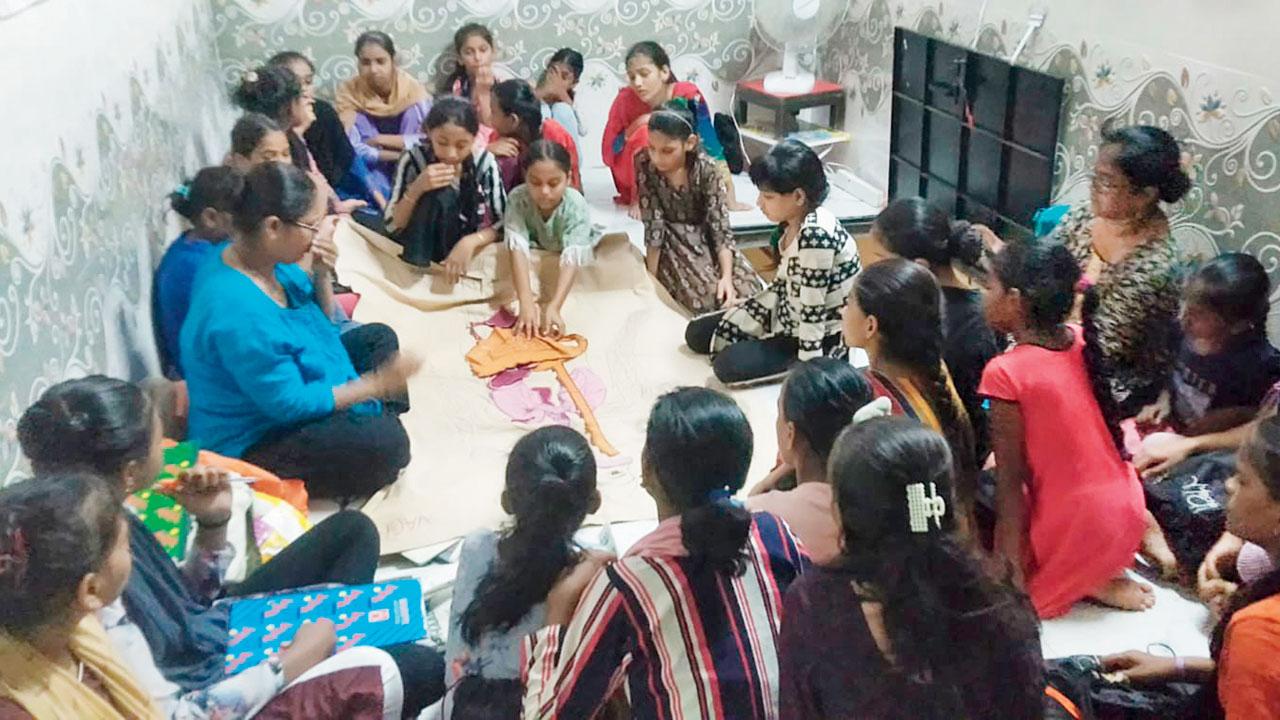Many teens develop rashes, infections due to this; getting rid of used pads is another major issue

Dr Sangeeta Desai, author of survey, flanked by feminist group Vacha’s director Yagna Parmar (right) and associate director Avidha Golwalkar (left)
Periods are a tough time for all teenage girls. But as the feminist group Vacha, which works with adolescents in Mumbai’s bastis found out, for these teenagers, periods present unique challenges. In a first-of-its-kind survey of 272 girls, carried out over 18 months in the slums of Bandra, Malwani, Asalfa, Marol and Kalyan-Dombivli, Vacha found that two of the most difficult challenges faced by these teenagers were changing their sanitary napkins and disposing of them.

Teenage girls participate in workshops on reproductive health organised by Vacha
“It was a shock to discover that even changing a napkin can be a problem,” said Dr Sangeeta Desai, author of the survey which will be presented on Tuesday, Menstrual Hygiene Day. Of those surveyed, 51 per cent said that they didn’t change napkins in school because those toilets either didn’t have water or a disposal bin. They changed them only at home, but because their houses comprise one room, they had to be discreet, wait till nobody was around, or tell their father/brother to go out.
Health concerns
“32 per cent went six hours without changing one napkin,” said Dr Desai. Rashes and infections were, therefore, common, but, these side effects were considered as much a part of menstruation by these teens, as the pain that accompanied it. The pain sometimes made them skip school, but neither their mothers nor their teachers had recommended any palliative for it. “This is another example of the way women’s health is given no importance,” said Yagna Parmar, director, Vacha.

Disposing of a used napkin was the other major challenge, as 60 per cent of the girls had no toilet at home. They baulked at throwing the napkin on top of the pile of overflowing garbage in the slum’s community dustbins. Hence, they waited till dark to leave their napkins on the window sills of community toilets, or behind their doors.
Hence, merely providing sanitary napkins at low cost, which has been the thrust of the government’s programme, is not enough, said Avidha Golwalkar, associate director, Vacha. Resolving the range of problems faced by girls living in slums, who constitute the majority in Mumbai, would entail providing more and cleaner community toilets, a more efficient waste collection system and changing the water distribution policy, all of which can only be done by the BMC and state government.
Supply issues
Even the basic provision of low-cost sanitary napkins is not fulfilled uniformly. These napkins should be available at every Jan Aushudhi Kendra. But said the girls, supply was erratic, and the napkins often too small.

According to the survey, 72 per cent of the girls were given free napkins in municipal schools, but not regularly, and these were often unbranded and of low quality. Napkins could be bought from the school’s vending machines, but only 30 per cent of the girls knew how to operate them. They could also be bought from the school staff at R5 each, but this often came with a scolding from the teacher. “Why didn’t you remember your due date and bring a napkin from home?” the girls were asked.
When distributing essentials to their members during the COVID-19 lockdown, Vacha staffers were asked to include sanitary napkins. After the lockdown, their members requested that they continue distributing napkins. Today, Vacha gives two packs of napkins to every member every month.
During workshops on reproductive health, Vacha’s members often told them to educate boys too. Boys reacted positively to such workshops, admitting they had never believed their sisters or girlfriends when the latter complained of painful periods.
There were some encouraging findings too. Most of Vacha’s members had shifted from using rags to sanitary napkins and 85 per cent of them did not feel embarrassed to buy napkins, and even asked their brothers and fathers to do so.
Said one, “Vacha mein aake mature ho gayi toh bindass hoke laati hoon pad dukaan se. Puri koshish kar rahi hoon bhai ko bata doon. [After coming to Vacha, I have matured, now I confidently go and buy pads. I am making full efforts to go and tell my brother too].”
 Subscribe today by clicking the link and stay updated with the latest news!" Click here!
Subscribe today by clicking the link and stay updated with the latest news!" Click here!








